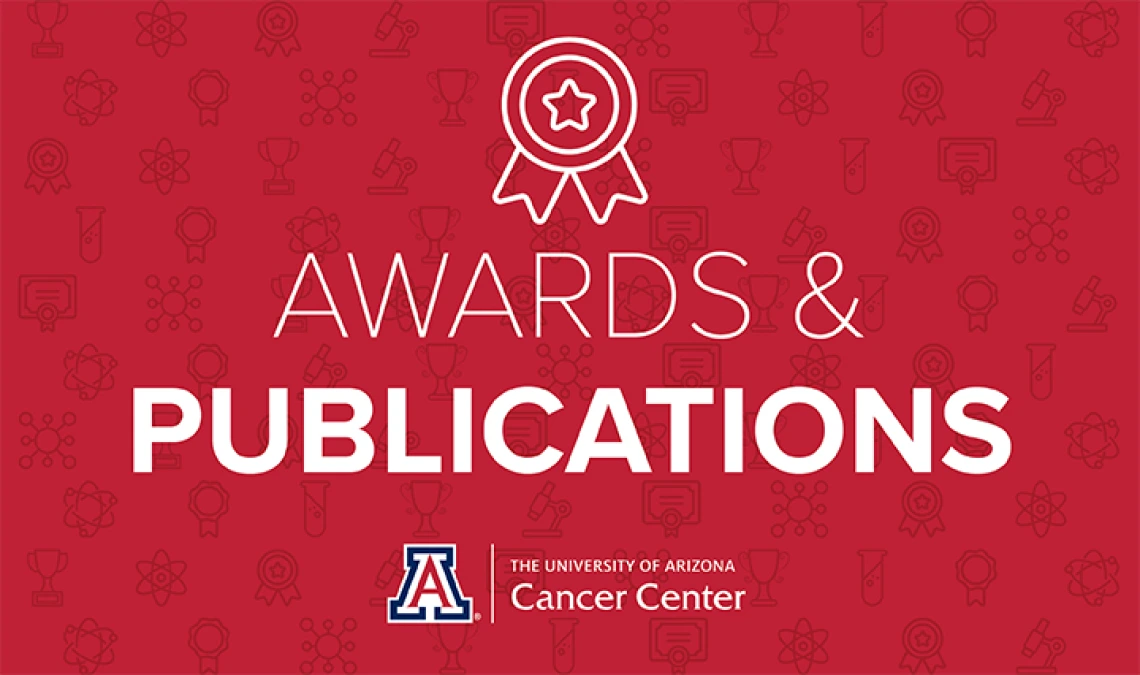UArizona Cancer Center Awards & Publications (January 2021)
Awards Update: January 2021

burgess-jefferey-3.jpg
 Jefferey L. Burgess, MD, MPH
Jefferey L. Burgess, MD, MPH Jefferey L. Burgess, MD, MPH
Cancer Prevention and Control Program, Research Member
Project Title: Women Firefighters Study: Stress, Cancer Risk and Reproductive Toxicity
Grant Number: EMW-2019-FP-00526
Administering Institute: Federal Emergency Management Agency (FEMA)
Funding: $1.5M (3 years)
Project Research: This research project aims to study the impacts of stress, cancer risk and reproductive toxicity on female firefighters. It will recruit 200 women, including 100 incumbent firefighters and 100 new recruits, at departments around the United States, including locally with the Tucson Fire Department. The project will have three primary components. The first is a cross-sectional study that will compare incumbent firefighters to the new recruits to identify potential differences in reported stress, epigenetic markers associated with increased cancer risk, and measure levels of anti-Mullerian hormone (AMH), which can be used to assess a woman’s ovarian reserve or oocyte count. The second aim will focus on new recruits through their first 18 months of becoming a firefighter. The final aim is a pilot intervention that will establish a “virtual kitchen table” intended to help foster better camaraderie and communication for female firefighters in the workplace, to explore potential benefits for reducing stress.
Dr. Burgess says: “Firefighters are working to protect us, so they make our lives safer and they put their lives on the line for us. However, it's really important for those of us in academia to do research in partnership with the fire service, to help provide them the answers they need to allow them to do their own job more safely. Because more and more women are joining the fire service, it’s imperative for us to understand the occupational risks that may be unique to these women, and how we can help make their jobs safer in the future.”
201508291_Cress-23.jpg
 Anne E. Cress, PhD
Anne E. Cress, PhD Anne E. Cress, PhD, Gregory C. Rogers, PhD, Clara N. Curiel-Lewandrowski, MD
Co-Principal Investigators
Project Title: Integrative Cancer Scholars Training Grant
Grant Number: 2T32CA009213-41A1
Administering Institute: National Cancer Institute (NCI)
Funding: $1.4M (5 years)
Project Research: The project is funded by an NCI Ruth L. Kirschstein National Research Service Award, which supports grants for institutions to develop or enhance research training opportunities for pre- and postdoctoral fellows in cancer research. Drs. Cress, Rogers and Curiel-Lewandrowski have used the award to establish the Integrative Cancer Scholars (ICS) training program. This program is an innovative predoctoral and postdoctoral fellows training program that embraces a paired-mentor team approach to maximize the impact and significance of cancer research. Specifically, Scholars choose one basic science mentor and one clinical science mentor from among nationally competitive basic and physician scientists. From the mentor pair, the Scholar selects a “lead” mentor from among the faculty with well-funded collaborative research programs with a broad range of cancer research specialties: Genomic and Epigenetic Instability, Tumor Microenvironment, Cancer Prevention and Control, Developmental Therapeutics, Cancer Imaging, Tumor Viruses and Immunology, Tumor Progression and Metastasis, and Cancer Pain. ICS is a unique program with distinct training events designed to integrate current molecular and clinical cancer concepts. Each Scholar is expected to conduct original cutting-edge research under the guidance of the mentor-pair, and to participate in clinical cases with their chosen physician mentor. Progress of each trainee is ensured through compulsory committee meetings and annual evaluations by the mentor-pair. Scholars also participate in career development and national networking opportunities, including hosting thought leaders in our Cancer Biology Seminar Series, acquiring new targeted skills in educational workshops, and community engagement with oncologists and biotechnology experts. Additionally, Scholars are provided support to travel and present their work at a national meeting.
Dr. Cress Says: “The future of cancer research is becoming more and more translational, which is why we are excited to receive this award. We believe it is essential to train our next generation of cancer researchers by matching them with both basic science and physician mentors who are known for their cutting-edge research. Combining both laboratory and clinical experience for our trainees will provide a highly collaborative, translational foundation that will position them for success in their own careers.”
201002707_-Katsanis_Emmanuel-DSC8381.jpg
 Emmanuel Katsanis, MD
Emmanuel Katsanis, MD Emmanuel Katsanis, MD
Therapeutic Development Program
Project Title: A Continuous Cancer Vaccine Platform Employing a Cell-Based Implantable Device
Sponsor: Hyundai "Hope on Wheels”
Administering Institute: N/A
Funding: $300,000 (2 years)
Project Research: Dr. Katsanis’ project aims to explore the potential use of a cell-based implantable device to produce a continuous cancer vaccine in pediatric mouse models, similar to previous research done with children’s diabetes. The project is a collaboration with Klearchos K. Papas, PhD, director of the Institute for Cellular Transplantation at the UArizona College of Medicine – Tucson, who has studied the use of implantable devices to release insulin in pediatric diabetes patients. The Hyundai “Hope on Wheels” funding, which sponsors pediatric cancer research, will be used to collect preliminary data from tumor models (such as leukemia, lymphoma and neuroblastoma) to determine how well they survive in the device and what kind of immune response they can generate.
Dr. Katsanis Says: “Much of my recent research work has been in bone marrow transplantation, because that is what I do clinically. However, I have done past work with clinical trials studying cancer vaccines, and I have never abandoned that exploration. What we're hoping to do is test different tumor models in mice to find which cell lines work best, how they survive and if they can generate a better immune response than what has been done in the past.”



